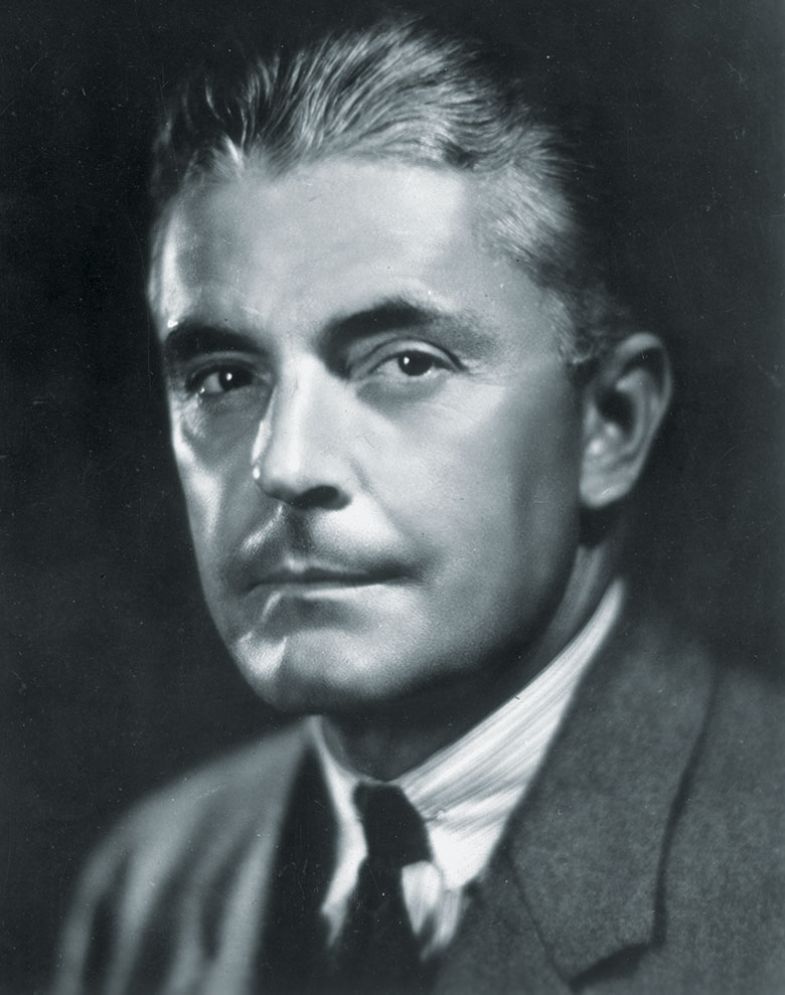Behaviorism is one of the most influential schools of thought in modern psychology. It emerged in the early 1900s as a reaction to traditional forms of psychology, which focused on the study of the mind and consciousness. Behaviorists believed that behavior could be explained solely in terms of environmental stimuli and responses, without reference to mental states or processes.
Two of the major founders of behaviorism were Edward Thorndike and John Watson. Both of these men made significant contributions to the development of the field, and thir work remains influential to this day.
Edward Thorndike was an American psychologist who lived from 1874 to 1949. He is perhaps best known for his work on the law of effect, which states that behaviors that are followed by positive consequences are more likely to be repeated in the future, while behaviors that are followed by negative consequences are less likely to be repeated. Thorndike’s work on the law of effect laid the foundation for the study of operant conditioning, which remains a central concept in behaviorism.
John Watson, on the other hand, is often referred to as the father of behaviorism. He was an American psychologist who lived from 1878 to 1958, and his work had a profound influence on the field of psychology. Watson believed that behavior could be studied scientifically, and he emphasized the importance of observable behavior as the primary focus of psychological research.
One of Watson’s most famous experiments was the Little Albert experiment, in which he demonstrated that a previously neutral stimulus (a white rat) could become associated with fear if it was repeatedly paired with a loud noise. This experiment demonstrated the principles of classical conditioning, which is another important concept in behaviorism.
In addition to his experimental work, Watson also wrote extensively about behaviorism, and his ideas helped to shape the field for decades to come. He believed that all behavior was the result of conditioning, and that psychological disorders could be treated through the use of behavior modification techniques.
The work of Edward Thorndike and John Watson laid the foundation for the field of behaviorism, and their ideas continue to influence the way that psychologists think about behavior and its underlying causes. By emphasizing the importance of environmental stimuli and observable behavior, these pioneers of behaviorism helped to establish a scientific approach to the study of psychology that has had a lasting impact on the field.
The Two Fathers of Behaviorism
Behaviorism is a school of psychology that focuses on the study of observable behavior and its relationship with environmental stimuli. Edward Thorndike and John Watson are considered the two major founders of behaviorism. Thorndike was an American psychologist who conducted extensive research on animal behavior and learning. He is best known for his work on the law of effect, which states that behavior that is followed by a positive consequence is more likely to be repeated, while behavior that is followed by a negative consequence is less likely to be repeated.
Watson, on the other hand, was a psychologist who believed that behavior is shaped by environmental factors and not by internal processes such as thoughts or feelings. He is famously known for his experiment with Little Albert, where he conditioned a young child to fear a white rat by pairing it with a loud noise. Watson believed that behavior can be predicted and controlled by manipulating environmental stimuli.
Both Thorndike and Watson believed that behavior can be explained and predicted by studying environmental stimuli and ther effects on behavior. Their work laid the foundation for the development of behaviorism as a major school of psychology.

John B Watson: Founder of Behaviorism
John B. Watson is widely considered as the founder of the psychological school of behaviorism. He was one of the most influential psychologists of the 20th century and his work laid the foundation for the development of behaviorism.
Behaviorism is a psychological theory that emphasizes the study of observable behaviors, rather than internal mental processes. Watson believed that all human behavior is learned through conditioning and that the environment plays a critical role in shaping behavior.
Watson conducted several famous experiments to support his theory, including the famous “Little Albert” experiment, in which he conditioned a young child to fear a white rat by pairing the rat with a loud, startling noise.
Watson’s work had a significant impact on the field of psychology and laid the foundation for the development of behavior therapy and other forms of behavior modification. Despite criticisms of his extreme views and controversial methods, Watson’s contributions to the field of psychology are undeniable.
John B. Watson is widely regarded as the founder of behaviorism, a psychological school that emphasizes the study of observable behaviors and the role of conditioning in shaping human behavior.
The Founding of Behaviorism
Behaviorism is a school of psychology that emerged in the early 1900s as a reaction to traditional forms of psychology, which focused on introspection and subjective experiences. The founding of behaviorism is attributed to the work of John B. Watson, who published an article in 1913 entitled “Psychology as the Behaviorist Views It.”
However, behaviorism was not a completely new approach to psychology. It drew upon earlier research, such as the work of Edward Thorndike, who pioneered the law of effect in the late nineteenth century. Thorndike’s research showed that behavior is shaped by the consequences that follow it, and this beame a key idea in behaviorism.
Behaviorism gained popularity in the early twentieth century due to its emphasis on observable behavior and the use of experimental methods to study it. This approach was seen as more scientific and objective than traditional forms of psychology, which relied on subjective experiences and introspection.
Behaviorism was founded in the early 1900s, with John B. Watson’s publication of “Psychology as the Behaviorist Views It” considered a key milestone in its development. However, it drew upon earlier research, such as Edward Thorndike’s work on the law of effect, which helped shape the approach of behaviorism.
The Father of Behaviourism: John B. Watson
John B. Watson is a prominent figure in the field of psychology, specifically in the area of behaviorism. He is often referred to as the father of behaviorism for his influential work during the early 20th century at Johns Hopkins University.
Watson’s research focused on the idea that behavior is shaped by the environment, rather than by innate tendencies or internal processes. He believed that psychology sould be based on observable behaviors and measurable data, rather than on subjective experiences or abstract concepts. This approach became known as behaviorism, and it had a significant impact on the field of psychology and beyond.
One of Watson’s most famous experiments involved conditioning a young boy named Albert to fear a white rat. By pairing the rat with a loud noise, Watson was able to create a lasting phobia in the child. This experiment demonstrated the power of conditioning and the effects of environmental factors on behavior.
Watson’s work in behaviorism paved the way for many other psychologists to explore the relationship between behavior and the environment. His ideas continue to influence psychology today, and his legacy as the father of behaviorism is well-established.
The Pioneers of Behavioral Theory
Behavioral theory is a school of thought in psychology that emphasizes observable behavior rather than internal mental processes. One of the most prominent figures associated with this approach is John B. Watson, an American psychologist who lived from 1878 to 1958. Watson was a vocal critic of the introspective methods employed by many of his contemporaries, arguing that psychology should focus on what can be observed and measured rather than on subjective experiences.
Watson’s approach, kown as methodological behaviorism, emphasized the importance of environmental factors in shaping behavior. He believed that behavior could be conditioned through repeated associations between stimuli and responses, and that this conditioning could be used to both shape and modify behavior.
Watson’s work paved the way for the development of other behavioral theorists, such as B.F. Skinner, who expanded upon Watson’s ideas and developed the concept of operant conditioning. Skinner believed that behavior was shaped by the consequences that followed it, and that positive reinforcement could be used to increase the likelihood of desirable behaviors.
The behavioral approach to psychology has had a significant impact on the field, and Watson’s contributions in particular have helped to shape our understanding of how behavior is learned and modified.

Source: educationaltechnology.net
John Watson’s Theory of Behaviorism
John Watson was a prominent psychologist who developed the behaviorist theory in the early 20th century. This theory emphasizes the importance of external behaviors, rathr than internal thoughts and emotions, in understanding human behavior. According to behaviorism, behavior is shaped by the environment and experiences that a person encounters throughout their life. Watson believed that a person’s physical responses, such as their actions and reactions, provide the only insight into their internal processes.
In his famous “Little Albert” experiment, Watson demonstrated how fear could be conditioned in a person through the repeated pairing of a neutral stimulus (a white rat) with a negative stimulus (a loud noise). This experiment provided evidence for the behaviorist theory that behavior can be learned and shaped through conditioning.
Watson’s behaviorism theory had a significant impact on the field of psychology, leading to the development of other schools of behaviorism, such as operant conditioning and social learning theory. Today, behaviorism remains a popular approach in psychology and is used in many practical applications, such as in therapy and education.
John Watson’s behaviorist theory emphasizes the importance of external behaviors in understanding human behavior. It suggests that behavior is shaped by the environment and experiences a person encounters throughout their life. This theory has had a significant impact on psychology and remains relevant today.
Ivan Pavlov and His Role in the Development of Behaviorism
While Ivan Pavlov is not considered the founder of behaviorism, his work on classical conditioning had a significant impact on the development of this school of thought. Behaviorism emerged as a dominant perspective in psychology during the early 20th century, and it was heavily influenced by the work of Pavlov and other researchers.
Behaviorism emphasizes the importance of observable behavior and the role of environmental factors in shaping behavior. Pavlov’s experiments with dogs, in which he demonstrated how a previously neutral stimulus (such as a bell) coud come to elicit a conditioned response (such as salivation), helped to establish the principles of classical conditioning.
While behaviorism has evolved and diversified since its early days, Pavlov’s contributions to the field of psychology have continued to be influential. Today, behaviorism remains an important perspective in psychology, and classical conditioning is still widely studied and applied in a variety of contexts.
Skinner’s Behaviorism Theory
Skinner’s behaviorism theory, also known as operant conditioning, is a psychological approach that explains how behaviors are learned and reinforced. According to this theory, behavior is shaped through a three-step process: stimulus, response, and reinforcement. This process involves the presentation of a stimulus, which elicits a response, and the subsequent reinforcement of that response, which strengthens the behavior.
Skinner believed that behaviors are learned through the consequences that follow them. If a behavior is fllowed by a positive consequence, such as a reward, it is more likely to be repeated in the future. Conversely, if a behavior is followed by a negative consequence, such as punishment, it is less likely to be repeated.
The ABCs of behaviorism were developed to make this process easier to remember. A stands for antecedent, which is the stimulus that precedes the behavior. B stands for behavior, which is the response to the antecedent. C stands for consequence, which is the reinforcement or punishment that follows the behavior.
Skinner’s behaviorism theory has been widely applied in various fields, including education, therapy, and animal training. It has been used to develop effective teaching strategies, treat behavioral disorders, and train animals to perform complex tasks. Skinner’s behaviorism theory provides a useful framework for understanding how behaviors are learned and reinforced.
John B Watson: The Father of Behaviorism
John B Watson is considered the father of behaviorism because of his significant contributions to the development of this psychological approach. Behaviorism is a school of thought in psychology that emphasizes the study of observable behavior rather than mental processes or experiences. Watson believed that psychology should be based on measurable and observable behavior, and he advocated for an objective, scientific approach to studying human behavior.
Watson’s most significant contribution to behaviorism was his research on the conditioning process. He believed that all behavior is learned through the process of conditioning, which involves the association of a stimulus with a response. Watson conducted a famous experiment with a baby named Little Albert, in which he conditioned the baby to fear a white rat by associating the rat with a loud noise. This experiment demonstrated the power of conditioning in shaping behavior.
In addition to his research on conditioning, Watson also emphasized the importance of environmental factors in shaping behavior. He believed that behavior is shaped by the environment in which it occurs, and that people could be trained to behave in cetain ways through reinforcement and punishment.
Watson’s groundbreaking research and advocacy for a scientific approach to psychology paved the way for the development of behaviorism as a major psychological approach. His emphasis on observable behavior and environmental factors continues to influence psychological research and practice today.

Conclusion
Edward Thorndike and John Watson were instrumental in the development of behaviorism, a psychological school of thought that emphasizes the role of environmental stimuli in shaping behavior. Thorndike’s law of effect and Watson’s belief in the conditioning of behavior through manipulation of stimuli have had a lasting impact on psychology and continue to influence research today. Their contributions have paved the way for a greater understanding of the relationship betwen behavior and the environment, and have opened up new avenues for research and application in fields such as education and therapy. the work of Thorndike and Watson has left an indelible mark on the field of psychology and will continue to be studied and admired for years to come.
